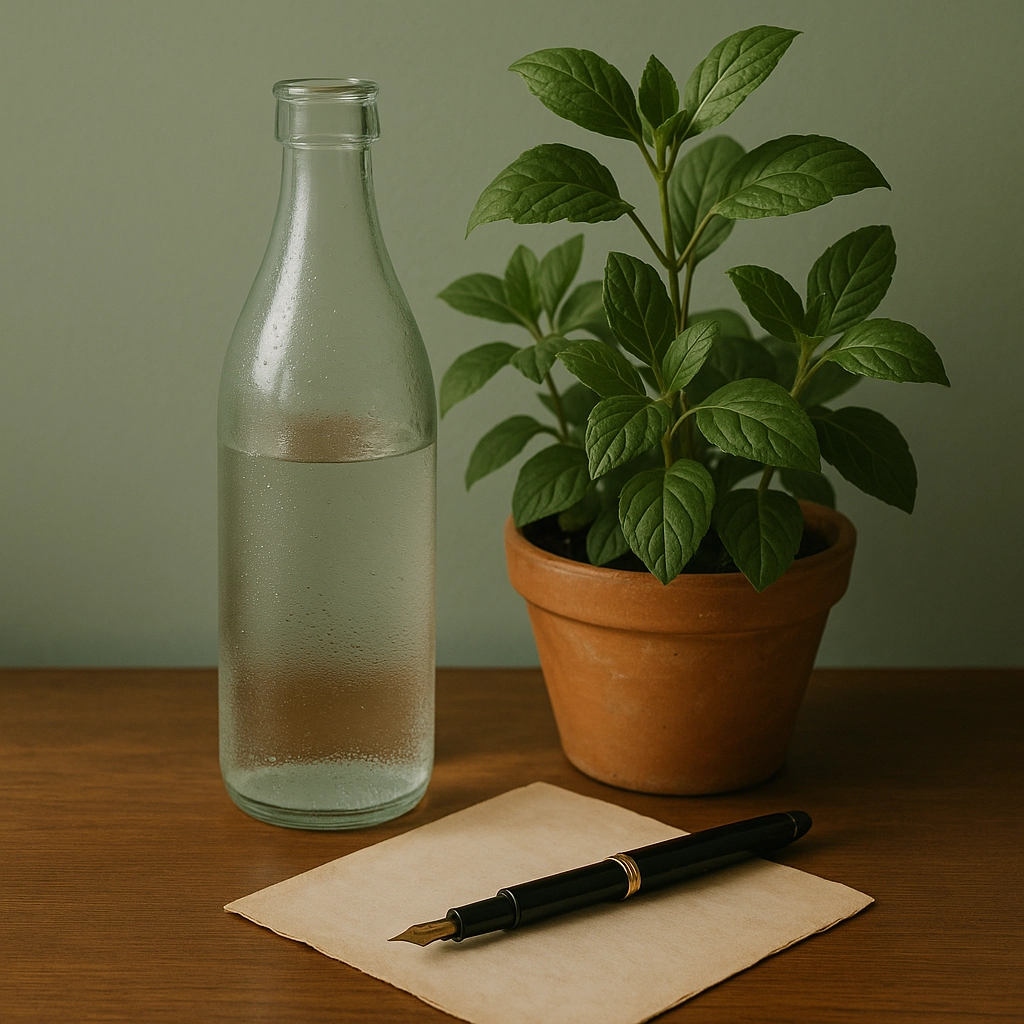Being Healthy as a Writer: Simple Habits & Must-Have Tools for a Balanced Lifestyle
- killianwolf
- Sep 8
- 5 min read

As an Amazon Associate, I earn from qualifying purchases. This means that if you click on one of my affiliate links and make a purchase, I may receive a small commission at no additional cost to you. I only recommend products I genuinely love or believe will add value to your life.
Let's be honest: writing for a living can wreck your body. Between the hunched shoulders, dry eyes from staring at screens, and that weird thing where you forget to drink water for six hours straight, being healthy as a writer feels like an uphill battle.
But here's the thing - it doesn't have to be. After years of helping writers craft their stories at Legacy Collection Press, I've seen the toll that neglecting health can take on creativity and productivity. The good news? Small changes make a huge difference, and the right tools can turn healthy habits into effortless routines.
Being Healthy as a Writer: Simple Habits & Must-Have Tools for a Balanced Lifestyle
Why Writer Health Actually Matters for Your Craft
When you're deep in a writing flow, health feels secondary to getting words on the page. But poor health habits create a vicious cycle. Poor posture leads to back pain, which leads to distraction, which kills your writing momentum. Dehydration causes brain fog. Lack of movement stiffens your body and your thinking.
The most productive writers I know aren't the ones who push through pain and exhaustion - they're the ones who've figured out how to sustain their energy and focus for the long haul.
Protecting Your Eyes and Sleep: The Blue Light Connection
Your screen is slowly cooking your eyeballs and messing with your sleep. Blue light exposure, especially in the evening, suppresses melatonin production and throws off your circadian rhythm. This is why you can feel wired after a late writing session, then wake up groggy the next morning.
Blue light protection glasses are a game-changer here. Look for ones that block at least 90% of blue light - not just the cheap yellow-tinted ones that barely do anything. I got these off Amazon, and they work really well! Wear them during evening writing sessions, and you'll notice you fall asleep easier and wake up more refreshed.

Pro tip: Set your devices to night mode after 7 PM, and consider using f.lux or similar software that automatically adjusts your screen temperature throughout the day. Your future self will thank you when you're not lying awake at 2 AM with your mind racing from a late-night writing session.
Keep Moving Without Leaving Your Desk
Sitting is the new smoking, and writers sit more than almost anyone. But you don't need to abandon your desk every 20 minutes to stay healthy. An under-desk elliptical or pedal exerciser lets you keep your legs moving while you write. I got this a few weeks ago, and I can even feel a burn in my core.
I was skeptical at first, but gentle movement while writing actually helps many writers think better. It's not about getting your heart rate up - it's about keeping blood flowing and preventing that sluggish feeling that comes from sitting too long.
For your feet and legs, compression socks are surprisingly effective. I like these a lot, and they come in many different colors. They prevent blood pooling, reduce swelling, and can help prevent varicose veins from developing. Get ones with graduated compression (15-20 mmHg is fine for most people) and wear them during long writing sessions.
Master the Art of Staying Hydrated
Writers are notoriously bad at drinking water. We get into the zone, and suddenly it's 4 PM and we've had nothing but coffee since breakfast. This leads to headaches, fatigue, and that afternoon crash that kills productivity.
A water reminder app like Plant Nanny or WaterLlama gamifies hydration in a way that actually works. Plant Nanny lets you grow virtual plants by drinking water - miss your water goals and your plant wilts. It sounds silly, but seeing your little digital buddy suffer is surprisingly motivating.

Set reminders for every hour, and try to drink a full glass each time. If plain water bores you, add lemon, cucumber, or mint. The key is making it so easy and automatic that you don't have to think about it.
Calendar Blocking
Being healthy as a writer requires intentional time management. Without structure, health habits get pushed aside whenever a deadline looms. Calendar blocking solves this by treating your health habits like non-negotiable appointments.
Block out time for:
Morning movement or stretching (15 minutes)
Lunch away from your desk (30 minutes)
Afternoon walk or exercise break (20 minutes)
Evening wind-down routine (15 minutes)
Color-code these blocks differently from your writing time so you can see at a glance whether you're maintaining balance. When someone asks for a meeting during your blocked health time, you can honestly say "I have a prior commitment."
The Power of Movement-Based Writing Sprints
Here's where the magic happens: combining productivity with health through strategic movement breaks. Instead of writing for hours straight, break your work into focused sprints with built-in movement breaks.
Try this system:
Sprint 1: Write for 25 minutes
Sprint 2: Write for 25 minutes
Sprint 3: Write for 25 minutes
Movement break: 10-15 minutes of walking, stretching, or light exercise
After every three writing sprints, get up and move your body. This isn't just about physical health - movement helps your brain process information and often leads to creative breakthroughs. Some of my best story insights have come during these movement breaks.

During your movement breaks, try:
Walking outside if possible
Desk stretches targeting your neck, shoulders, and back
Light yoga or bodyweight exercises
Dancing to a favorite song
Simple household tasks like making tea or tidying up
The key is making movement a reward for completing your writing sprints, not a punishment that interrupts your flow.
Creating Your Daily Writer Wellness Routine
Being healthy as a writer isn't about perfect habits - it's about consistent ones. Start with one or two changes rather than attempting to overhaul your entire lifestyle overnight.
A simple daily routine might look like:
Morning: Put on blue light glasses, drink a full glass of water, do 5 minutes of stretching
During writing: Use movement-based sprints, wear compression socks, keep water app running
Evening: Remove blue light glasses 1 hour before bed, do gentle stretches, prepare for tomorrow
Throughout the day: Honor your calendar blocks, take regular hydration breaks
The beauty of this approach is that each healthy habit supports the others. Better sleep improves focus. Regular movement prevents stiffness. Proper hydration maintains energy. It's all connected.
Small Tools, Big Impact
You don't need expensive equipment to stay healthy as a writer. The tools that make the biggest difference are often the simplest:
Blue light glasses for better sleep
Under desk exercise equipment for gentle movement
Compression socks for circulation
Water tracking apps for hydration
A simple calendar for time blocking
Think of these tools as investments in your long-term writing career. The cost of a few simple tools is nothing compared to the cost of burnout, chronic pain, or health problems down the road.
Remember, you can't pour from an empty cup. Taking care of your body isn't selfish or secondary to your writing - it's what makes sustainable creativity possible. Whether you're working on your first memoir or your tenth novel, your health is the foundation that supports everything else.
Ready to transform your writing routine? Start with one small change today. Your future writing self will thank you for it. And if you're working on preserving family stories or considering professional writing services, check out our approach to sustainable storytelling - because great stories deserve healthy storytellers.


Comments